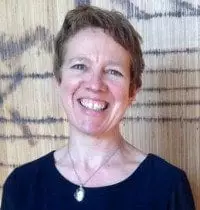Fundraiser vs Funder – who has the hardest job?
[spb_row row_bg_type=”image” parallax_image_height=”content-height” parallax_image_movement=”fixed” parallax_image_speed=”0.5″ parallax_video_height=”video-height” parallax_video_overlay=”none” row_overlay_opacity=”0″ width=”1/1″ el_position=”first last”] [spb_text_block pb_margin_bottom=”no” pb_border_bottom=”no” width=”1/1″ el_position=”first last”]
What I like best about my job
[/spb_text_block] [/spb_row] [spb_column width=”1/2″ el_position=”first”] [spb_text_block pb_margin_bottom=”no” pb_border_bottom=”no” width=”1/1″ el_position=”first last”]
The Fundraiser
Many moons ago I worked in broadcasting and politics. I chose that career because I wanted to change the world, somehow. I often reported from the seat of power at Westminster but began to realise the real power probably lay elsewhere.
Then I met Plymouth Music Zone – and the charity sector. I soon saw how places like that could really change people’s lives, a little bit at a time. I was face-to-face with powerful stories every day.
Whether it was the young child with complex behavioural issues finally finding her voice and bonding with her new found family as she began counting “how many sleeps” until the next music session. Or the blind 80 year woman whose weekly singing sessions in her residential home became the highlight of her week – so much so she now wants to jump off the highest building to do a fundraising abseil for us.
So, 12 years on, what I like best about my job is that it moves me.
Simple. It touches me every day because it means so much to others – and that gives me a sense of purpose and meaning in return. It’s an empowering two-way street. I never felt that at Westminster.
[/spb_text_block] [/spb_column] [spb_column width=”1/2″ el_position=”last”] [spb_text_block pb_margin_bottom=”no” pb_border_bottom=”no” width=”1/1″ el_position=”first last”]
The Funder
After working in charities on the frontline and in management, I came into grant making more through luck than judgment. But once here I found it suited me very well in its combination of head (analysis and decision making) and heart (funding meaningful and vital work).
I have worked in grant making for 14 years now. It is a privileged role: I get to meet with people leading hundreds of different charities. I get to learn about their cause and challenges and, in some cases, I can help them to access precious funds. The best bit of my job is meeting passionate people and hearing the stories of the lives they have touched and changed.
Running a charity is hard, especially in today’s climate of increased demand, reduced funding and negative press. I find it really rewarding when I go back to charities a few years on from the initial funding and see how they have grown and developed. It is good to be part of helping a charity to thrive.
[/spb_text_block] [/spb_column] [spb_row row_bg_type=”image” parallax_image_height=”content-height” parallax_image_movement=”fixed” parallax_image_speed=”0.5″ parallax_video_height=”video-height” parallax_video_overlay=”none” row_overlay_opacity=”0″ width=”1/1″ el_position=”first last”] [fullwidth_text alt_background=”none” width=”1/1″ el_position=”first last”]
The parts of my job that are hard
[/fullwidth_text] [/spb_row] [spb_column width=”1/2″ el_position=”first”] [spb_text_block pb_margin_bottom=”no” pb_border_bottom=”no” width=”1/1″ el_position=”first last”]
The Fundraiser
I recall my mother used to always say to me “I’ve only got one pair of hands!” I think the job of a charity leader nowadays often requires turning so many hands to so many things that you’ve never really done before. Yes, at times it can be exciting, but the pressure to increasingly diversify income sources while balancing capacity, skill and investment issues in order to operate in so many radically different income markets is certainly a major challenge.
Not surprisingly, that can sometimes feel daunting and relentless at times – especially in a mid-sized charity with fewer people to help with the juggling. Amazingly enough, I have learned to do it without dropping as many balls as you’d imagine and with a few little tricks up my sleeve, but any multi-skilled magic takes proper resources and support to keep it going.
It’s very important to look after ourselves as fundraisers to increase our resilience but the tougher bit is doing so without having to develop a thick skin to survive. Open hearts are important in our sector and I’d hate any ‘hardening up’ to threaten what makes the sector so powerful. That’s not easy – the burn-out rate among fundraisers is very high.
[/spb_text_block] [/spb_column] [spb_column width=”1/2″ el_position=”last”] [spb_text_block pb_margin_bottom=”no” pb_border_bottom=”no” width=”1/1″ el_position=”first last”]
The Funder
By far the hardest task is having to say ‘no’ – a lot. No funder ever has enough money to support all the great work going on. So I have to tell passionate, hard-working – and sometimes desperate – people why they have not been funded. Though I never enjoy delivering bad news, honest feedback is the most helpful thing I can offer – in the long run it saves precious time if a charity knows not to bother applying again or can help them be more successful with future bids.
It is not just saying ‘no’ to one organisation that is difficult. Through my work I see the changes in policy and the economy and how they impact on hundreds of charities and thousands of beneficiaries. I see starkly that there is not enough money to go around; that it is getting tougher; how much is not getting supported and how many charities are struggling to survive.
On a personal level, the main drawback of my role is that, however much I am interested in and working in partnership with a charity, I am not directly involved. I have to stay objective as funding decisions are made on the basis of governance, effectiveness, sustainability and impact not who pulls on your heart strings. I remain slightly detached and so miss the emotional reward that comes from being on the frontline.
[/spb_text_block] [/spb_column] [spb_row row_bg_type=”image” parallax_image_height=”content-height” parallax_image_movement=”fixed” parallax_image_speed=”0.5″ parallax_video_height=”video-height” parallax_video_overlay=”none” row_overlay_opacity=”0″ width=”1/1″ el_position=”first last”] [spb_text_block pb_margin_bottom=”no” pb_border_bottom=”no” width=”1/1″ el_position=”first last”]
Advertisement
Who has it tougher?
[/spb_text_block] [/spb_row] [spb_column width=”1/2″ el_position=”first”] [spb_text_block pb_margin_bottom=”no” pb_border_bottom=”no” width=”1/1″ el_position=”first last”]
The Fundraiser
I have a lot of sympathy for funders. We have a lot in common. Yes they have more money than us but we both operate in scarcity with not enough to go round yet we both see abundant joy when the money is given or received.
I guess I’d be fascinated to know how funders personally deal with rejecting others compared to how we as fundraisers experience receiving regular rejection when our bids are unsuccessful. I secretly fantasise it must surely be easier ‘on the other side’. But is it?
In terms of rejection, the toughest bit of all is definitely having to tell the abseiling pensioner why there’s no more funding for her weekly singing session that she cares so deeply about. There’s only so many buildings she can jump off.
Mind you, we still count our blessings. Perhaps there are fewer happy, risk-taking, singing elders moved to wish to jump from a great height for a funder? So, perhaps funders do have it tougher after all?!
Debbie Geraghty is the Executive Director of Plymouth Music Zone, an award winning music charity that uses music to reach out and enhance the lives of some of the most vulnerable or marginalised groups in the community especially during their toughest times.
[/spb_text_block] [/spb_column] [spb_column width=”1/2″ el_position=”last”] [spb_text_block pb_margin_bottom=”no” pb_border_bottom=”no” width=”1/1″ el_position=”first last”]
The Funder
I meet many fundraisers and am generally impressed that they manage to stay so positive and optimistic. It is hard to take so many knock-backs and still keep asking for money.
Funders want to do the best they can with their resources and have to make really difficult decisions when choosing between causes and applicants. Some decisions stay with you and you worry that a charity will close and a valuable service end. But the fact that we are one step removed does make it easier – whereas fundraisers carry the burden of responsibility for the continuation of work they believe in and know what difference it makes to clients and colleagues if the funds don’t come in.
Having been on both sides, I know that getting money in is harder than giving it out. So when the next bad news story breaks, your sympathies should lie with the fundraisers.
Emma Beeston is a grant maker and an independent Philanthropy Advisor.
[/spb_text_block] [/spb_column] [spb_row row_bg_type=”image” parallax_image_height=”content-height” parallax_image_movement=”fixed” parallax_image_speed=”0.5″ parallax_video_height=”video-height” parallax_video_overlay=”none” row_overlay_opacity=”0″ width=”1/1″ el_position=”first last”] [spb_text_block pb_margin_bottom=”no” pb_border_bottom=”no” width=”1/1″ el_position=”first last”]
Photo: tug of war by Dragon Images on Shutterstock.com
[/spb_text_block] [/spb_row]





